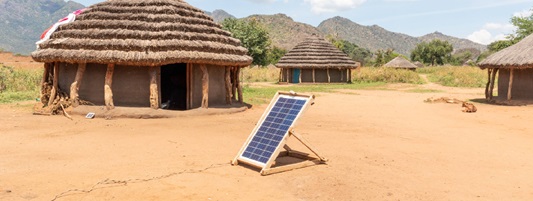Off-grid for Energy Access
About
By 2050, global demand for energy will almost double, while water and food demand are set to increase by over 50%. Meeting this surge of demand presents a tremendous challenge, given competing needs for limited resources amid heightened climate change effects. The agriculture sector is the largest employer in the world, sustaining the livelihood of nearly 2.5 billion people, many of whom live in poverty. Increasing productivity and incomes in the agriculture sector is one of the most effective ways to fight poverty, stimulate socio-economic development and meet sustainable development goals.
To overcome the increasing constraints the world faces, we need to fundamentally rethink how we produce and consume energy in the water and food sectors. Renewable energy technologies provide access to a cost-effective, secure and environmentally sustainable supply of energy, and their rapid growth can have substantial spill-over effects in the water and food sectors. Yet detailed knowledge on the role renewables can play remains limited and widely dispersed.
Decentralised renewable energy can deliver energy for agricultural activities in rural areas in an affordable, secure and environmentally-sustainable way at different stages in the agri-food chain. In the pre-harvesting stage, renewable energy-based water pumping can increase yields, displace existing fossil-fuel-based systems and expand irrigation in a manner that is cost-effective and environmentally sustainable. Renewable energy can also be used in post-harvesting activities for food processing and preservation, thus maximising the productivity and profitability of activities, including crop drying, milling, pressing, cooking and refrigeration.











